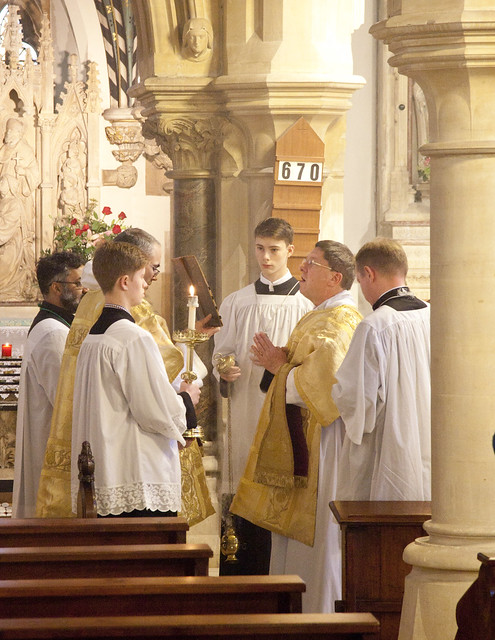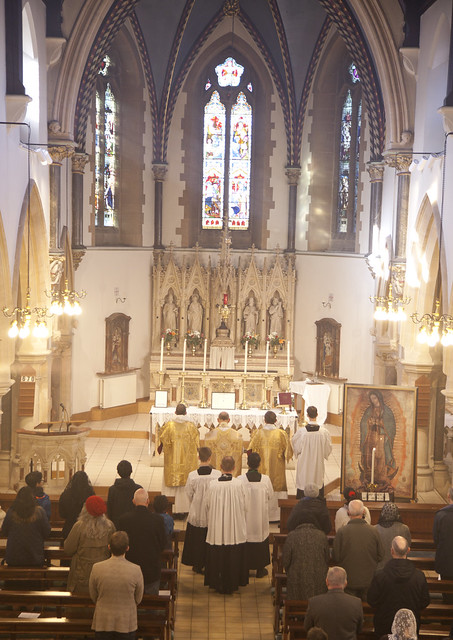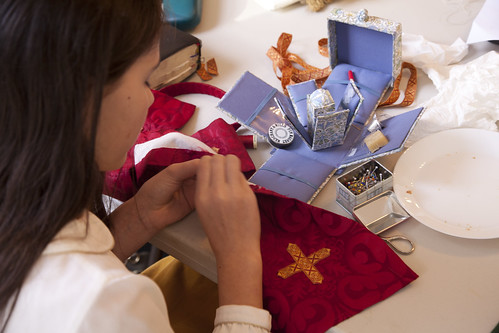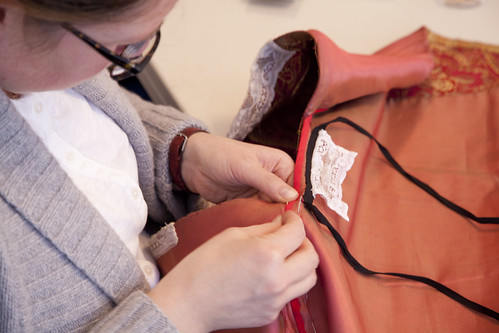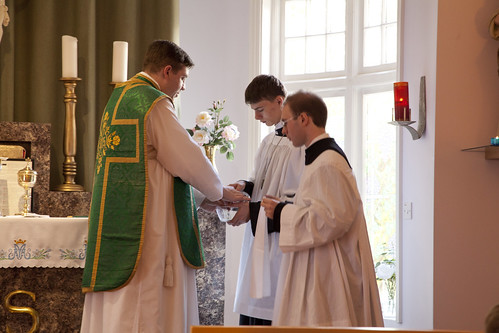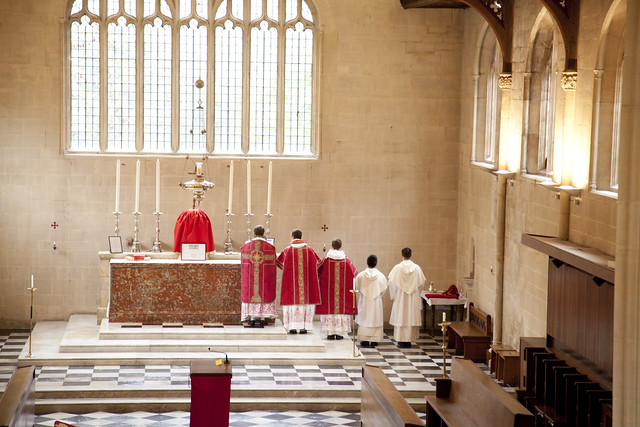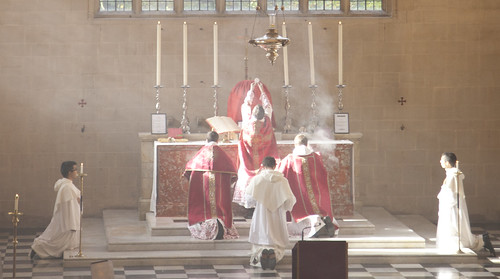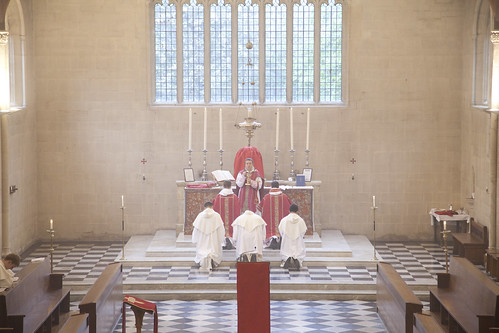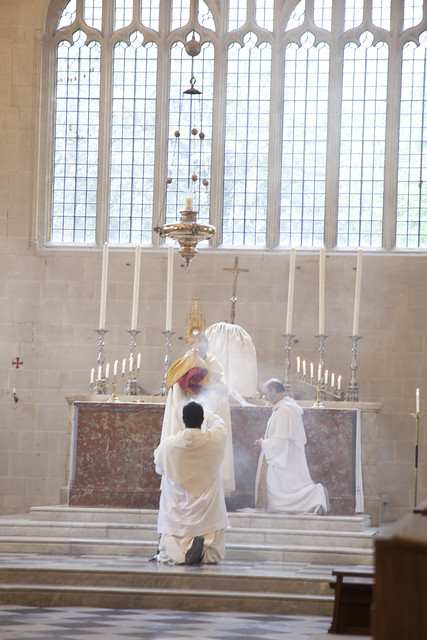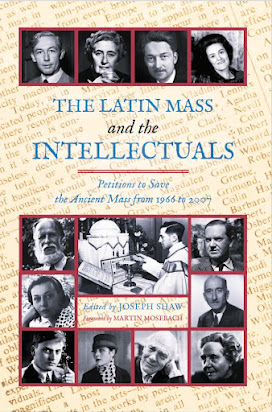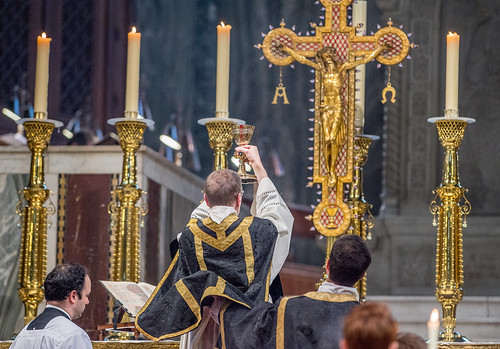Chairman's Blog
Annual Mass of Reparation for Abortion in Bedford: photos
The Latin Mass Society began this Mass following the tragic abortion referendum in Ireland. The Church of the Holy Child & St Joseph, Bedford houses the national shrine of Our Lady of Guadalupe, patroness of the pro-life movement.
It was accompanied by a Byrd Mass and the chant propers (it was a Votive Mass of Our Lady of Guadalupe), by a small choir under the direction of Dominic Bevan. Mass was attended by 70 to 80 people.
Sewing Retreat: photos
Talk on the Latin Mass and the Intellectuals
This is the talk I gave to the Pax Liturgia Conference in Rome to launch my book, The Latin Mass and the Intellectuals. If you click below it will start at 3 mins 35 secs and skip the introductory matter.
Oxford Pilgrimage 2023: photos
I delighted to
I delighted to announce the launch of
The Latin Mass and the Intellectuals:
Petitions to Save the ancient Mass from 1966 to 2007
Preface
by Martin Mosebach
With contributions
from Leo Darroch, Fr Gabriel Díaz-Patri, Philip Maxence, Sebastian Morello, Matthew
Schellhorn, and Erik Tonning
In due course it will be available from Arouca Press (in the USA) and the Latin Mass Society shop (in the UK), and Amazon: see my author page.
I will be introducing it in Rome, at the
Paix Liturgique Conference, Friday 27th October (Patristic Institute Augustinianum, via Paolo VI, 25),
and in London on Thursday 9th November.
The London launch will take place at the St Wilfrid Hall, London Oratory SW7 2RP
As you know, I have many friends in the world who are artists, poets, authors, editors, etc. Now they are well able to appreciate our chant and even our Latin. But they are all, without exception, scandalized and grieved when I tell them that probably this Office, this Mass will no longer be here in ten years. And that is the worst. The monks cannot understand this treasure they possess, and they throw it out to look for something else, when seculars, who for the most part are not even Christians, are able to love this incomparable art.
Support the Latin Mass Society
Oxford Pilgrimage Saturday 21
High Mass in the Dominican Rite in the Priory Church of the Holy Spirit, Blackfriars
St Giles, OX1 3LY, at 11am. Accompanied by polyphony from the Newman Consort.
This is followed, after a break for lunch, by a procession to one of the sites of Martyrdom in the city at 2pm. This is followed by Benediction at Blackfriars.
Do join us! We even have a gallows at the site of the martyrdoms.
Westminster Cathedral: in Crisis magazine
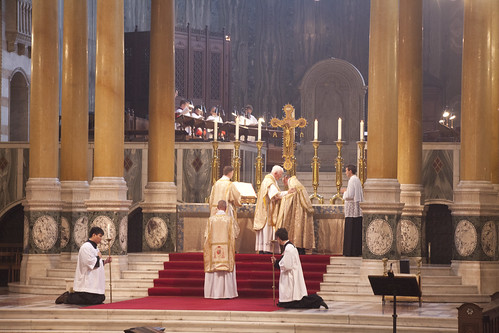 |
| The Kiss of Peace at a Pontifical Mass following the LMS AGM in 2019 |
I have written more about this, in Crisis Magazine. Some key paragraphs:
"The Cathedral was packed with people, many standing all down the aisles, in the galleries, and at the back of the Church. It was a most impressive celebration and astonished the foreign visitors by the beauty of the church, the music, and the intense devotion of the congregation. We could not have hoped for a more triumphant assembly.… There were representatives from Italy, France, Germany, Belgium, Holland and other places."
This is a description by Geoffrey Houghton-Brown, my predecessor as Chairman of the Latin Mass Society, of the first Traditional Mass to be celebrated in Westminster Cathedral after the liturgical reform, on Saturday, June 17, 1972.
...
One of the many puzzles of Traditionis Custodes and subsequent documents is whether it is seeking to marginalize traditional Catholics or to integrate them. The radicalization of traditional Catholics that it condemns, fairly or not, is the predictable result of marginalization. The “parallel Church,” which it decries, develops when one group suffers marginalization. But the solution being put forward is also marginalization.
...
The policy of Traditionis Custodes is not a policy founded on hope, like Pope Benedict’s hope for the enrichment of the Church by the ancient liturgy. It is, instead, fearful of the future, fearful of young Catholics and the changes they may bring. It is a policy that “stands athwart history yelling Stop.”
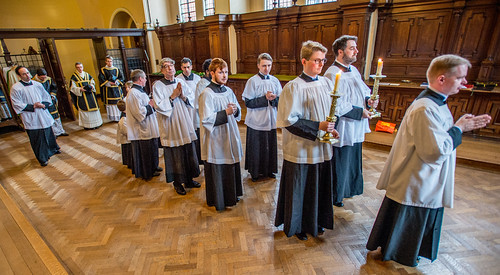 |
| Preparing to process out of the sacristy, Annual Requiem 2016. Photo by John Aron. |
Support the Latin Mass Society
Westminster Cathedral and the Traditional Mass: in the Catholic Herald
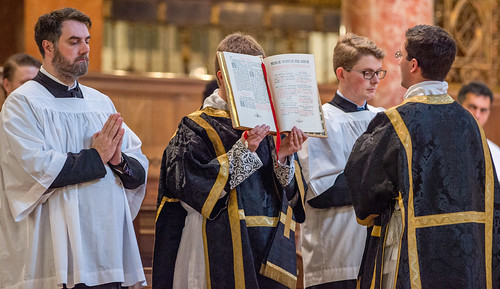 |
| The Annual Requiem in 2016. I'd forgotten I'd been on the serving team on that occasion. Photo by John Aron. |
The Latin Mass Society has been informed that the Traditional Latin Mass may no longer be celebrated at the High Altar of Westminster Cathedral, as is has been twice a year since 1972. With a break for Covid, there have therefore been about 100 such Masses over fifty years. The next one would have been a Requiem Mass on 4 November.
A monthly Low Mass will continue, on First Saturdays in the Blessed Sacrament Chapel, but these two annual Masses are regarded as being for the Latin Mass Society, and therefore not part of the Cathedral’s pastoral provision. Many Catholic associations have Masses in the Cathedral, and over many years these ones have, indeed, served as the Society’s Annual Requiem and the Mass for our Annual General Meeting. Nevertheless, they had the same origin as the monthly Masses, as part of Cardinal Heenan’s response to the “English Indult” for the Traditional Mass, which he personally sought and gained from Pope Paul VI.
Pilgrimage, suffering, and sacred geography: for 1Peter5
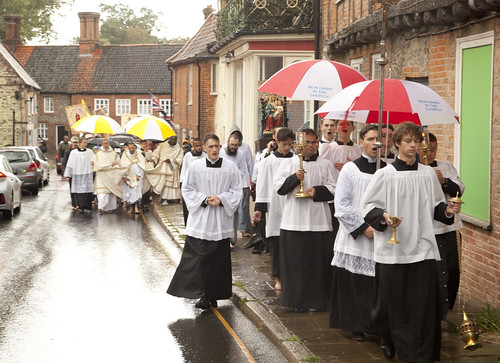 |
| LMS Procession through the streets of Little Walsingham, in the rain. |
I recently walked the 76 miles from Cambridge to Walsingham in Norfolk, via Ely, over four days, a walk organised by the Latin Mass Society. I met most of my fellow pilgrims—for that was what they were—after the first leg, and walked with them for the remaining 57 mile: 200 people slogging along paths and roads, or looking after the walkers as drivers or cooks. Some of the young men never seemed to lose their bounce, but I think for everyone at certain points, and for a lot of us for a lot of the time, the element of suffering, of penance, dominated our feelings. After a certain point you can keep walking in a mechanical way, despite the discomfort of your feet or legs, but the discomfort remains.
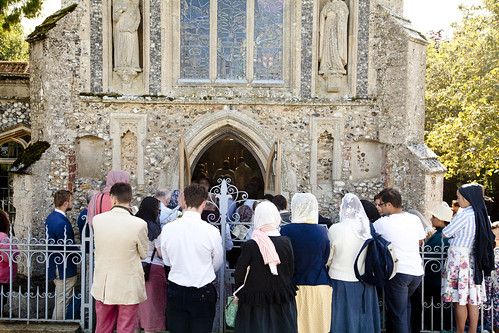 |
| Mass in the Slipper Chapel |
As my aching limbs have slowly recovered—it takes longer every year—I have been reflecting on what it was actually for. It was, of course, an act of devotion to Our Lady, for the conversion of England. In 1061 Our Lady ordered a replica of the Holy House of Nazareth to be built in this small Norfolk village, but this was completely destroyed on the order of King Henry VIII in 1538. To honour its location today may seem quixotic, but it is a reassertion, in the teeth of apparent political and cultural reality, of the idea that this is still a holy place: that we will still honour it as our heavenly mother wished us to, more than 960 years ago.
 |
| Mass in the Catholic Shrine's Reconciliation Chapel |
Support the Latin Mass Society
LMS Annual Requiem in Westminster Cathedral Cancelled
 |
| LMS Annual Requiem 2018, celebrated by the retired Bishop Patrick Campbell, in Westminster Cathedral. |
28th September 2023
The Latin Mass Society has been informed that the
Annual Requiem (sung, 1962 Missal) scheduled to take place at Westminster
Cathedral on Saturday 4th November at 2:30pm will not take place.
The 1962 Missal will continue to be used in the
Cathedral on First Saturdays at 4pm (Low Mass), including Saturday 4th
November. A Sung Requiem Mass for deceased members and benefactors of the
society will take place at Corpus Christi, Maiden Lane on the following Monday,
6th November, at 6:30pm, accompanied by the Southwell Consort.
The Annual Requiem has taken place in consultation
with the Latin Mass Society since Cardinal Heenan gained the 1971 ‘English
Indult’. The series of monthly Low Masses were established at the same time.
The Latin Mass Society lays a wreath on the tomb of Cardinal Heenan annually,
in thanksgiving for his intervention, and this tradition will continue.
Background
The Latin Mass Society was founded to preserve
the ancient Latin liturgy of the Catholic Church in 1965.
The 1962 Missal (containing the ‘Traditional
Latin Mass’) was used before the Second Vatican Council (1962-1965). Mass
according to this missal may be celebrated under certain conditions alongside
the reformed Missal first used in 1969.
The English Indult was a permission granted by Pope
Paul VI which allowed the bishops of England and Wales to permit celebrations
of the older Missal. This possibility was extended to bishops all over the
world by Pope John Paul II in 1984. Today, under new legislation by Pope
Francis in 2021, it is increasingly restricted.
Link to statement on the LMS website.
Latin Mass Society, 9 Mallow Street, London EC1Y 8RQ |
020 7404 7284
Media contact: portia@lms.org.uk
Registered Charity Number: 248388



